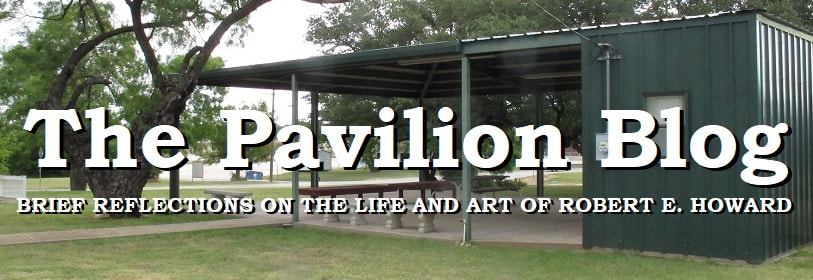|
By Chase A. Folmar
While reading any of the Weird Tales Three, there’s a certain quote by Clark Ashton Smith that always springs to mind: "My own conscious ideal has been to delude the reader into accepting an impossibility, or series of impossibilities, by means of a sort of verbal black magic, in the achievement of which I make use of prose-rhythm, metaphor, simile, tone-color, counter-point, and other stylistic resources, like a sort of incantation." In this description we can see not only the principle of Smith's own writing, but that of Howard, Lovecraft, many other pulp writers of the time, and later authors who were influenced by such stories. How often are we as readers inundated in these tales with expansive lists of strange, almost unpronounceable names like Zothique, Dylath-Leen, and Tsotha? How often do we come across archaic or uncommon words we need to consult the dictionary about in order to fully understand, words like cyclopean, sibilant, and comber? How often are we presented with these stories told not in the personal, more introspective style of traditional narratives, but in the detached, wider-lens format one might find in Herodotus’s Histories, or if Dante had written his Divine Comedy in prose instead of verse? In each of these facets we can see the incantation Smith writes about coming together. With the fantastical, sometimes even absurd onslaught of names, we are thrown headfirst into completely alien and unknowable settings, immediately creating an otherworldly aura for the story to exist within. The antiquated vernacular is then added to maintain the overall weirdness of the narrative, but because these words have real-world application and history, the effect is an almost unnoticed sense of credibility lent to the described events. Culminating all of this is the quasi-historical, matter-of-fact rhetoric many of these stories are crafted with, as if they are tales stemming from by-gone ages of human history lost to all recollection more than they are imaginative romps through totally fabricated secondary worlds of pure fantasy. Thus, the black magic is cast, and we as readers are free to fall under its spell. This technique, so masterfully expressed by Smith, is part of the reason I believe authors like him, Howard, and Lovecraft have endured for as long as they have, and why there are still audiences hungry not only for their works, but for stories that share the same 'verbal black magic' approach. Think of Frank Herbert’s Dune, which couches events taking place in the interstellar far-future with medieval nomenclature and trappings, or Gene Wolfe’s Book of the New Sun, wherein a major part of the conceit is that the story takes place so far in Earth’s future that the 'translator' has to use both antiquated diction and prehistoric animal names as the closest substitutes for things which have no modern, recognizable equivalents. It’s such an interesting way to not only think about writing, but also about what kind of effect you want to elicit within your audience, and speaks to the literary genius of authors like Smith, Howard, and Lovecraft. Blogger bio: Chase A. Folmar is a writer of speculative fiction and weird fantasy, with an avid interest in the craft of storytelling. His works and other collected thoughts can be found on his website, chaseafolmar.com. The Pavilion Blog is the companion blog of The Dark Man: Journal of Robert E. Howard and Pulp Studies. It features brief, conversational reflections related to Robert E. Howard at around 500-600 words. Interested in contributing? E-mail the editors at [email protected] Follow TDM on Twitter: @tdmjournalreh Comments are closed.
|
Details
CategoriesArchives
June 2022
|

 RSS Feed
RSS Feed